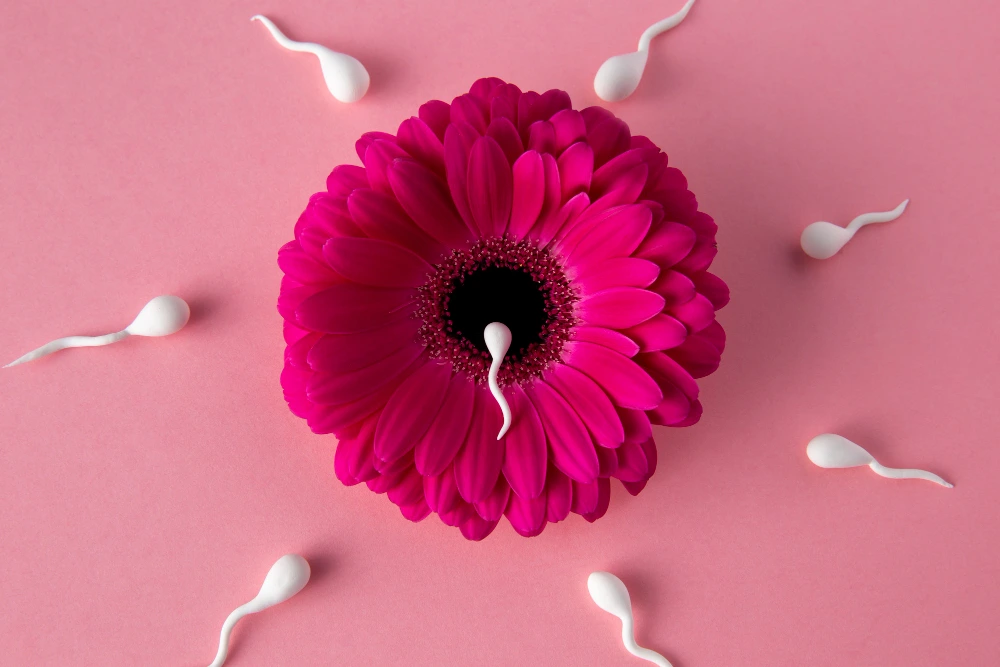For couples trying to conceive or trying to avoid becoming pregnant, understanding how long sperm survives in the female body is important. Sperm survival is heavily dependent on the environment of the female reproductive system, as cervical mucus, hormones, and specific timing all affect the duration. Read on to find out how long sperm can live in the vagina and the factors that come into play when they do.
Sperm Lifespan in the Female Body
In ideal conditions, sperm can last up to five days in the female reproductive system. The survival time is dependent on many factors, especially during the fertile window when cervical mucus is most accommodating. When fertile, cervical mucus changes in texture and becomes thinning out, creating an environment that allows sperm to travel and stay alive, the sperm’s route to the fallopian tubes and egg.
If sperm is to fertilize the egg, it has to get there, and only a tiny fraction of sperm manages to make the journey. Only the healthiest sperm survive the first entrance into the vaginal environment, which has a very high acidity, and cervical 'crypts' serve as storage for sperm, releasing them slowly and increasing the sperm's lifespan within the reproductive.
Factors Affecting Sperm Survival
Cervical Mucus Quality: Sperm live longer in fertile cervical mucus, which protects and nourishes sperm until they can be sloughed off as sperm meet an egg.
Acidity of the Vagina: The vaginal environment is acidic, naturally, and it can kill sperm in mere hours unless they get to the cervix quickly.
Fallopian Tube Support: As long as sperm make it into the fallopian tubes, they can remain viable for up to five days, waiting for the egg to be released during ovulation.
Timing of Ovulation: Sperm survival is dependent on ovulation timing. During the days that lead up to and include ovulation, the body produces more fertile cervical mucus to allow sperm to survive and fertilize the egg, which has the highest chance of survival of all.
Hormone Levels: The quality of the reproductive environment is affected by hormonal fluctuations. Estrogen levels increase during the fertile window, helping make and thicken cervical mucus, which supports sperm mobility and survival. The opposite happens though; outside of this period, progesterone levels rise, making the cervical mucus thicker and less welcoming to sperm.
Sperm Health and Quality: Sperm itself is important for survival, and the quality of it is very important. Sperm that are healthy, with strong motility and normal morphology (shape), are better able to survive in the acidic vaginal environment and make it through the reproductive tract to reach the egg.
Frequency of Ejaculation: Frequency of ejaculation may affect sperm quality. Infrequent ejaculation can result in aged sperm, which don’t move as well, while frequent ejaculation can reduce sperm count per release. The healthy frequency, especially during the fertile window, is to maintain a healthy frequency.
Female Immune System Response: Sometimes the female body’s immune system attacks sperm as foreign bodies. The reaction works differently for each person and can affect sperm survival. Treatments and lifestyle changes can sometimes help reduce this response for couples trying to conceive.
Hydration Levels: The body produces fertile cervical mucus in order to support proper hydration and, in turn, an ideal environment for sperm. Thus, adequate hydration in both partners can help with the sperm journey and survival in the reproductive tract.
Lifestyle Factors in Both Partners: Overall reproductive health is influenced by smoking, alcohol, stress, and diet. These factors can also alter the quality of cervical mucus and levels of hormones and the general environment of the reproductive tract in the female partner, all of which are important for sperm survival.
Why Choose Femmenest for Your Fertility Journey?
Our goal at Femmenest is to deliver expert fertility care through each patient’s unique journey and with personal guidance at every turn. Delhi’s top choice for fertility treatment is our state-of-the-art facilities, expert doctors, and compassionate approach. Femmenest uses advanced technology to help couples increase their conception chances with support and expertise suited to their fertility needs.
FAQs
How Many Sperm Are Needed to Fertilize an Egg?
While only one sperm is needed to fertilize an egg, millions of sperm are released with ejaculation. It’s a very large number because very few sperm will get through this difficult path from the vagina to the fallopian tubes.
How long does it take for sperm to get out of a woman's body?
If not sustained in the cervical mucus, most sperm will be out of a woman’s body within hours. But those that get into the cervical crypts can remain viable up to five days.



